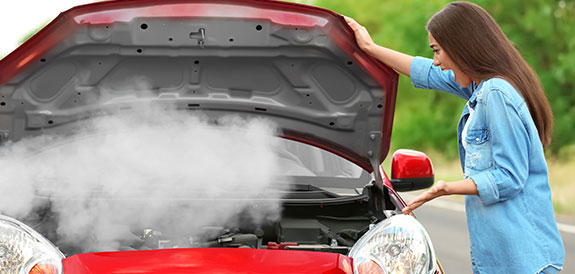Get Compensation for Nissan Diesel claim Scandal
The Nissan Diesel claim scandal, also known as the diesel emission scandal, has had a significant impact on Nissan diesel vehicle owners. The scandal involves allegations of emissions testing fraud, where car manufacturers, including Nissan, used defeat devices to manipulate emissions testing results. As a result, diesel vehicle owners have faced financial loss, health risks, and decreased resale value for their vehicles.
If your vehicle was affected, you may be eligible for compensation.
Understanding Nissan Diesel Emission Scandal
The Nissan diesel emission scandal, also referred to more broadly as the dieselgate scandal, came to light when car brands, including Nissan, were implicated in emissions testing fraud. These car manufacturers installed defeat devices in diesel models which alter emissions during testing, allowing vehicles to pass emissions standards artificially. This scandal had far-reaching consequences, affecting car makers globally and resulting in high court cases and group action claims.
What are the Allegations against Nissan in the Dieselgate Scandal?
Nissan, along with other car brands, had a significant role in the dieselgate scandal by utilising defeat devices in their diesel vehicles. This resulted in violations of emissions standards and regulations. Consequently, owners of diesel vehicles experienced financial losses due to decreased vehicle value, potential harmful emissions, and various respiratory illnesses. Group action claims have been initiated against car manufacturers, including Nissan, to seek compensation and hold them accountable for their actions.
In June 2020, allegations were made against Nissan for installing "defeat devices" in their vehicles, similar to the Volkswagen dieselgate scandal. These devices were designed to manipulate emissions results during lab tests, displaying significantly lower NOx emissions compared to real-world driving conditions. NOx is a harmful pollutant that contributes to various health and environmental problems. It is estimated that around 700,000 Nissan vehicles in the UK, including both diesel and petrol models, may be affected. The Nissan Qashqai potentially exceeds emissions limits by up to 15 times. Legal claims are currently being organised for Nissan owners.
Impact of the Scandal on Nissan Diesel Vehicle Owners
The dieselgate scandal has had a profound impact on Nissan diesel vehicle owners. Many of these owners have seen a decrease in the resale value of their vehicles, as the emissions scandal has damaged consumer trust in diesel models. Furthermore, emissions from these vehicles potentially pose health risks, such as respiratory diseases, to owners and those exposed to the harmful emissions. As a result, seeking compensation for the financial and health consequences of the scandal has become a priority for many Nissan diesel vehicle owners.

How to Determine if Your Nissan Vehicle Was Affected?
If you own a Nissan diesel vehicle, you may be wondering how to determine if your vehicle was affected by the diesel emission scandal. One way to identify emissions-altering defeat devices is by understanding how emissions testing works. During emissions testing, vehicles are subjected to specific standards, which should not be manipulated by defeat devices. If your Nissan vehicle fails to comply with emissions testing standards, it may indicate the presence of defeat devices, making you eligible to file a Nissan diesel emissions claim for compensation.
Nissan Emissions Scandal: Key Statistics
| Statistic | Source |
|---|---|
| Nissan recalled 1.2 million vehicles in Japan in 2018 due to improper final inspections, including emissions checks | Reuters |
| The recall included Nissan Note, Serena, and Leaf models produced between 2014 and 2018 | BBC News |
| Nissan faced accusations of using defeat devices in some diesel models, particularly the Qashqai and Juke | The Guardian |
| Tests conducted by the South Korean government found that some Nissan Qashqai diesel models emitted up to 10 times the legal limit of nitrogen oxide (NOx) | The Korea Herald |
| Nissan set aside ¥9.2 billion ($83 million) to cover the costs related to the improper inspections and emissions scandal in Japan | Nikkei Asian Review |
| The company's market share in Europe dropped from 3.9% to 3.5% in the aftermath of the scandal | JATO Dynamics |
| Nissan's CEO, Hiroto Saikawa, apologised for the inspection and emissions issues and pledged to improve the company's compliance measures | Reuters |
| The Japanese government ordered Nissan to submit a report detailing the cause of the inspection and emissions issues and its preventive measures | The Japan Times |
| Nissan's stock price dropped by 4.6% on the Tokyo Stock Exchange following the announcement of the recall and emissions accusations | Bloomberg |
Please note that these statistics were sourced from various news outlets and may be subject to updates as the Nissan emissions scandal develops.
Which Nissan models are currently classified as possibly impacted by the emissions problem?
An investigation is underway to determine the full scope of Nissan models impacted by emissions issues. Preliminary findings suggest that models such as the Qashqai, Note, Juke, and X-Trail, particularly those manufactured between 2008 and 2018 and diesel-powered, might be involved. Our team offers assistance in identifying if your specific Nissan vehicle is part of this issue.
How to Identify Emissions Altering Defeat Devices?
Emissions altering defeat devices, utilised in the dieselgate scandal, are designed to manipulate emissions testing results. These devices detect when a vehicle is undergoing emissions testing and modify the vehicle's performance to meet emissions standards artificially. Manufacturers, including Nissan, used defeat devices to ensure their vehicles passed emissions tests, even if their actual emissions exceeded legal limits. Identifying the presence of defeat devices is crucial for determining if your Nissan diesel vehicle was affected by the emissions scandal and potentially eligible for compensation.
How to Check Your Nissan Diesel Vehicle Eligibility for Compensation
We have made it very simple to know if you have a claim, simply enter your registration number and a vehicle check will be carried out, if the vehicle has been affected then you can complete a short form giving your consent for a group claims solicitor to represent you along with 100,000's of others in court against Nissan.
What is the Process of Filing a Nissan Diesel Emission Claim?
Filing a Nissan diesel emission claim involves a legal process aimed at seeking compensation for the damages caused by the emissions scandal. Understanding the claim process is essential for successfully pursuing your claim. Here, we outline the general steps involved in filing a Nissan diesel emission claim:
- Gather necessary documents, such as vehicle registration and proof of ownership of the vehicle during the eligibility period
- When you complete the application form your details will be passed to a leading group claims solicitor.
- Work with your legal representative to prepare your claim and ensure all required information is included, which will not be a lot of documentation - it is a very simple process.
- The group claims solicitor will submit your claim to the appropriate authority or court, following the specified guidelines and deadlines and give you updates on case progressions and compensation payouts.

How to Prepare Necessary Documents for a Diesel Emission Claim in the UK?
To file a diesel emission claim it is very simple. You will only need to provide proof of ownership documents to the group claim solicitor and they will handle everything else
Legal Procedure Involved in the Claim Process
The legal procedure involved in diesel emission claims can vary depending on the jurisdiction and legal system. Working with a reliable law firm specialising in emissions claims is essential for navigating the claim process effectively which is why we have partnered with firms that have experience with manufacturers including Mercedes, BMW, Vauxhall, Jaguar Land Rover and Renault.
Why is the Importance of Having a Reliable Legal Expert?
Having a reliable legal expert by your side is crucial when filing a diesel emission claim. The importance of seeking legal representation in emission claim cases cannot be overstated. Here's why having a reliable legal expert is essential:
- A reputable law firm specialising in diesel emission claims can provide expert guidance and navigate complex legal procedures.
- Your solicitor can assess the strength of your claim, ensuring you meet eligibility criteria and requirements.
- Legal experts are well-versed in consumer protection laws and regulations, advocating for your rights and interests.
- By working with a respected law firm, you can increase your chances of receiving fair compensation for the damages you have suffered.
- A dedicated legal team will handle various aspects of your claim, including negotiations, court representation, and legal fee arrangements.
'No Win, No Fee' in Emission Claims
Anyone group claim law firm we introduce you to will be on a 'no win, no fee.' but what does this mean?
The 'no win, no fee' agreement, or Conditional Fee Agreement, is a legal arrangement that provides claimants with access to legal representation for emission claims without upfront legal fees. Here's what you should know about understanding the 'no win, no fee' agreement:
- Claimants seeking compensation for emission claims can engage a solicitor on a 'no win, no fee' basis, which means that legal costs are only payable if the claim is successful.
- The fee basis establishes a risk-sharing arrangement, where solicitors invest time and resources in pursuing the claim without immediate payment.
- Legal costs, including solicitors' fees and expenses, are typically recovered from the compensation amount awarded to the claimant if the claim is successful.
- Before entering into a 'no win, no fee' agreement, claimants should carefully review and understand the terms, including any potential costs or deductions from the compensation awarded.
What are the Factors Influencing Compensation Amount in Diesel Emission Claims?
The compensation amount in diesel emission claims is influenced by various factors that take into account the specific circumstances of each claimant's case. Here are the factors that can influence the compensation amount in diesel emission claims:
- The severity of emissions regulations violations, such as high levels of nitrogen oxide emissions, can contribute to higher compensation amounts.
- Claims involving car finance, where diesel vehicles financed through car loans were negatively affected, may result in additional compensation.
- Consumer protection rights, including compensation for financial loss and health risks, also impact the compensation amount awarded.
- Legal experts assess the impact of the diesel emission scandal on claimants' health, finances, and vehicle value when determining compensation amounts.
- Each claimant's unique circumstances and the extent of their damages play a crucial role in influencing the compensation amount awarded.
Approximate Compensation Range for Nissan Diesel Emission Claimants
It is essential to note that the compensation range for Nissan diesel emission claimants can vary based on individual circumstances, the particular vehicle model, and the impact of the diesel emission scandal. Here's an approximate range for compensation amounts:
- Compensation amounts for Nissan diesel emission claimants typically depend on factors such as the severity of emissions violations, the impact on vehicle value, and the health risks posed.
- The compensation range for claimants may fall within a particular bracket, reflecting the individual impact of the diesel emission scandal and the specific circumstances of each claimant's case.
- Consulting with legal experts specialising in emissions claims can provide claimants with a more accurate estimate of the potential compensation range for their Nissan diesel emission claims.
Impact of the Scandal on Nissan Diesel Vehicle Resale Value
The dieselgate scandal has had a significant impact on the resale value of affected Nissan diesel vehicles. Several factors contribute to this decrease in resale value, including:
- The dieselgate scandal damaged consumer trust in diesel vehicles, resulting in decreased demand and market value.
- Potential buyers may have concerns about the emission compliance and emission standards of affected vehicles, impacting their willingness to pay higher prices.
- As the scandal involved various car manufacturers, including Nissan, the overall reputation of diesel vehicles was negatively affected, leading to a general decline in resale value.
- Car owners should be aware that the dieselgate scandal's impact on resale value may vary based on the specific model, production year, and emissions violations associated with their vehicle.
- Seeking legal advice can help you navigate the impact of the emissions scandal on your vehicle's resale value.
What are the Common Concerns about Diesel Emission Claims?
When it comes to diesel emission claims, car owners often have common concerns. Here are some of the most frequently raised concerns regarding diesel emission claims:
- Questions about the legal procedure involved, including court representation and potential settlements.
- Uncertainty about understanding emissions standards, testing processes, and emissions regulations compliance.
- Seeking legal representation from a reputable law firm experienced in diesel emission claims.
- Ensuring clarity on legal costs, fee basis, and potential contingency fee arrangements.
- Understanding the responsibility car manufacturers have in relation to emissions regulations compliance and consumer protection.

What are the Misconceptions About Diesel Emission Claims?
Several misconceptions exist regarding diesel emission claims, which can create confusion and uncertainty among car owners. Here are some common misconceptions about diesel emission claims:
- Misconception: Filing a diesel claim will incur exorbitant legal fees, deterring car owners from seeking compensation.
- Clarifying the registration process for diesel emission claims, ensuring car owners understand eligibility requirements and submission timelines.
- Addressing misconceptions that only certain car brands are eligible for diesel emission claims, clarifying that all car manufacturers involved in emissions scandals can be held accountable.
- Dismissing misconceptions that diesel emission claims are useless or without legal basis, reinforcing the importance of consumer protection and emissions regulations compliance.
- Educating car owners about different emissions scandals, including those involving car brands like Volkswagen, Renault, Mercedes, Jaguar, Fiat, BMW, and Chrysler.
Are You Ready to File Your Nissan Diesel Emission Claim?
If you believe your Nissan diesel vehicle was affected by the emissions scandal, you may be ready to file your claim. Here are some key points to consider before starting your Nissan diesel emission claim process:

- Determine the eligibility criteria for your particular vehicle, ensuring it falls within the scope of the diesel emission claim.
- Research emissions regulations, standards, and testing processes to understand the basis for the claim.
- Ensure you have all the necessary documents, such as vehicle registration, emissions testing results, and evidence of emissions standards violation.
- Seek legal advice from a reputable law firm specialising in diesel emissions claims, who can guide you through the claim process and ensure your rights are protected.
- Familiarise yourself with consumer protection rights and legal remedies available to claimants seeking compensation for diesel emission claims.
What are the implications of the Nissan diesel claim for consumers and the automotive industry?
The implications of the Nissan diesel claim for consumers are potential financial compensation for damages incurred and loss of trust in the brand. For the automotive industry, it raises concerns about credibility and compliance with emission standards, leading to stricter regulations and increased scrutiny.

